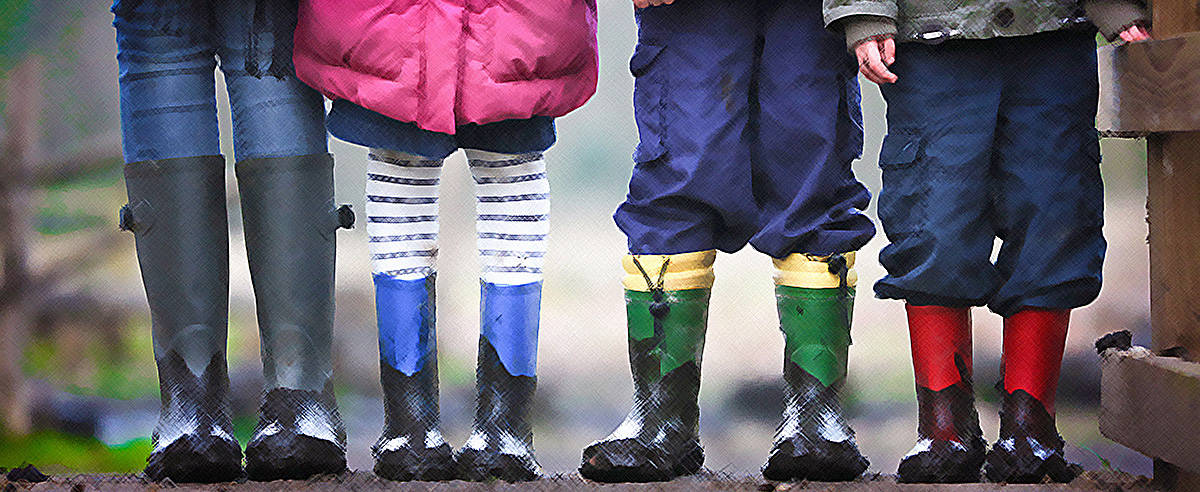Children pick up on conversations more than you probably realise. As turbulent times continue to affect those most vulnerable in our societies, it is important that we don't shy away from being open and honest with our young counterparts. But how can we guide them through these difficult times and ensure that they feel protected and safe? Pia Sundell, an expert regarding children’s rights and child welfare and Executive Director for the Finnish Children’s Welfare Association discusses crisis and child welfare, and explores what initiatives are being implemented to support families across Europe.
The ongoing war in Ukraine, rising electricity prices and increased inflation are things that we as adults are extremely worried about. The economy is a source of concern also for many families with children. It is very important that we remember that children have a greater understanding of the family's financial situation than many parents want to believe. Children live and grow up in the world that adults have created for them. They see and hear a lot and need help processing and understanding the complex world we are living in.
Taking responsibility
Amongst low-income families, it is common for children to feel anxiety, guilt, and envy. Children's ability to interpret information is still limited and therefore it is important that we as adults talk about money at the child's level. We must show that we take responsibility for the financial situation in the family, and that children do not have to carry the weight of the family’s economic situation.
The Convention on the Rights of the Child (the CRC) exists to protect the rights of every child, ensuring no child is left behind. Every child under 18 years of age is protected by the principles laid out within this Convention and despite some progress, the Convention is still not implemented or widely known nor understood. Millions of children continue to suffer violations of their rights when they are denied adequate health care, nutrition, education and protection from violence. Individuals childhoods continue to be cut short when they are forced to leave school, do hazardous work, get married, fight in wars, or are locked up in adult prisons.
Global challenges
There are many initiatives we can implement to make Europe and the countries around the world better for children to grow up in. Initiatives such as free lunch for school children, opportunities for subsidised hobby activities and an extra payment of the child allowance can be solutions that come to the rescue of many families. Financial benefits that support families with children should consider different family configurations and the varying needs of families. For example, this summer France announced 100 euro food voucher grants for low-income households which, if rolled-out, will support nine-million low-income households across the country. Such an initiative could also be a means of incentivising small and medium-sized enterprises (SMEs) to offer profit-sharing schemes.
Of course, implementing initiatives is all well and good, but it is also extremely important to continuously review and update the various forms of support to monitor meaningful impact.
Embracing initatives
There are many initiatives we can implement to make Europe and the countries around the world better for children to grow up in. Initiatives such as free lunch for school children, opportunities for subsidised hobby activities and an extra payment of the child allowance can be solutions that come to the rescue of many families. Financial benefits that support families with children should consider different family configurations and the varying needs of families. For example, this summer France announced 100 euro food voucher grants for low-income households which, if rolled-out, will support nine-million low-income households across the country. Such an initiative could also be a means of incentivising small and medium-sized enterprises (SMEs) to offer profit-sharing schemes.
In Finland, we are also striving to protect vulnerable infants and their families. Best practices such as free afternoon care for infant school children from low-income families, increasing social activities where possible for those who might not have the opportunity otherwise and parenthood support are just a few strategies in place to support those most vulnerable and provide equal opportunities.
Of course, implementing initiatives is all well and good, but it is also extremely important to continuously review and update the various forms of support to monitor meaningful impact.
Impact of rising costs
During financially difficult times, it is important to make courageous decisions for the benefit of the child. We know that preventive support measures are cheaper in the long run and pay for themselves in the form of healthy adults. Therefore, we should not cut back on services aimed at children, young people, and families.
Right now, families throughout Europe are struggling with increased expenses on many levels. Many parents and adults are worried about the future. Many are even scared for what will come. Despite the serious situation we all are facing right now, we adults should instil faith and trust in the children. We owe the young generation hope for the future. In my point of view, above all, we owe children and youths, child-friendly decisions, across Europe and globally. Let’s make the world better place for our children and young people to live in.


Pia Sundell
Pia Sundell is an expert regarding children’s rights and child welfare, having worked in child welfare for the last twenty years. She is the Executive Director for the Finnish Children’s Welfare Association, having held the position since 2008.
